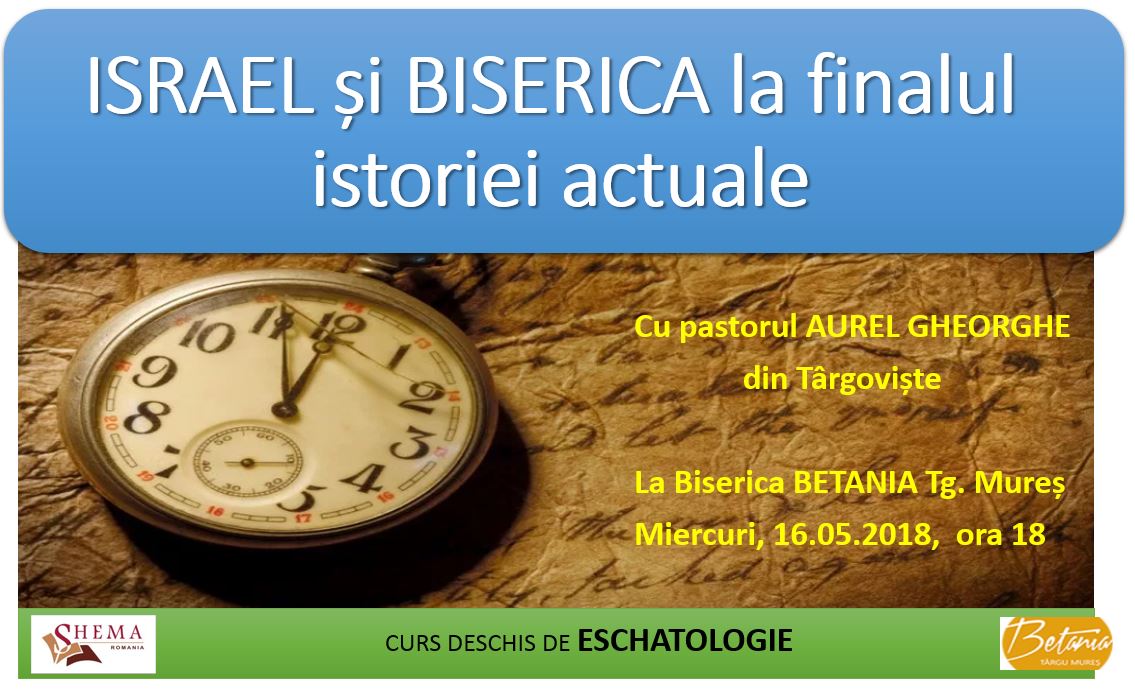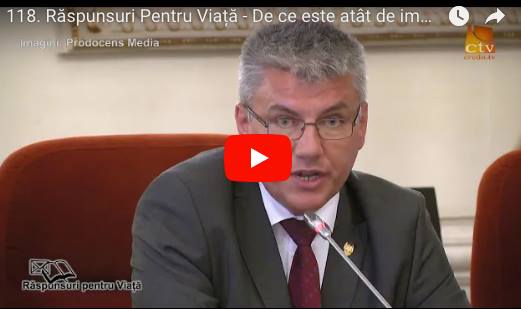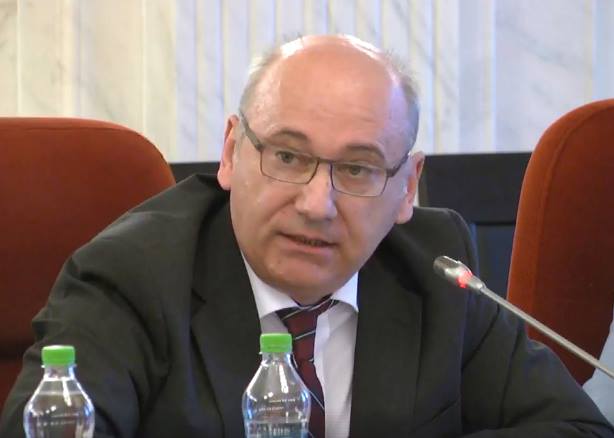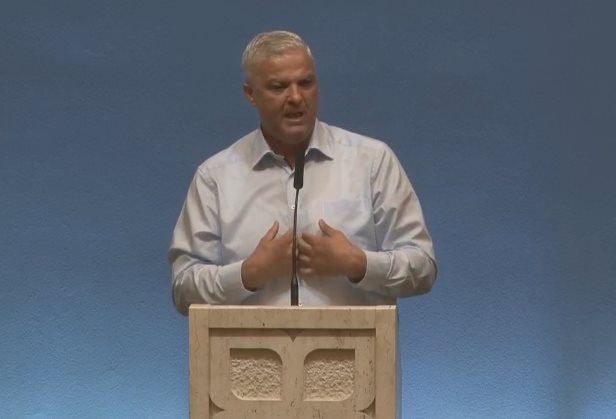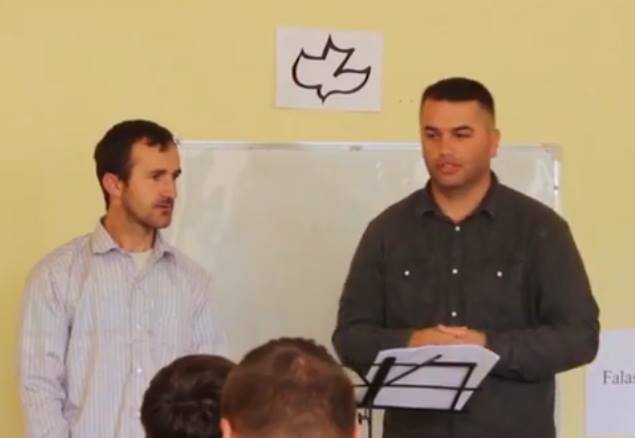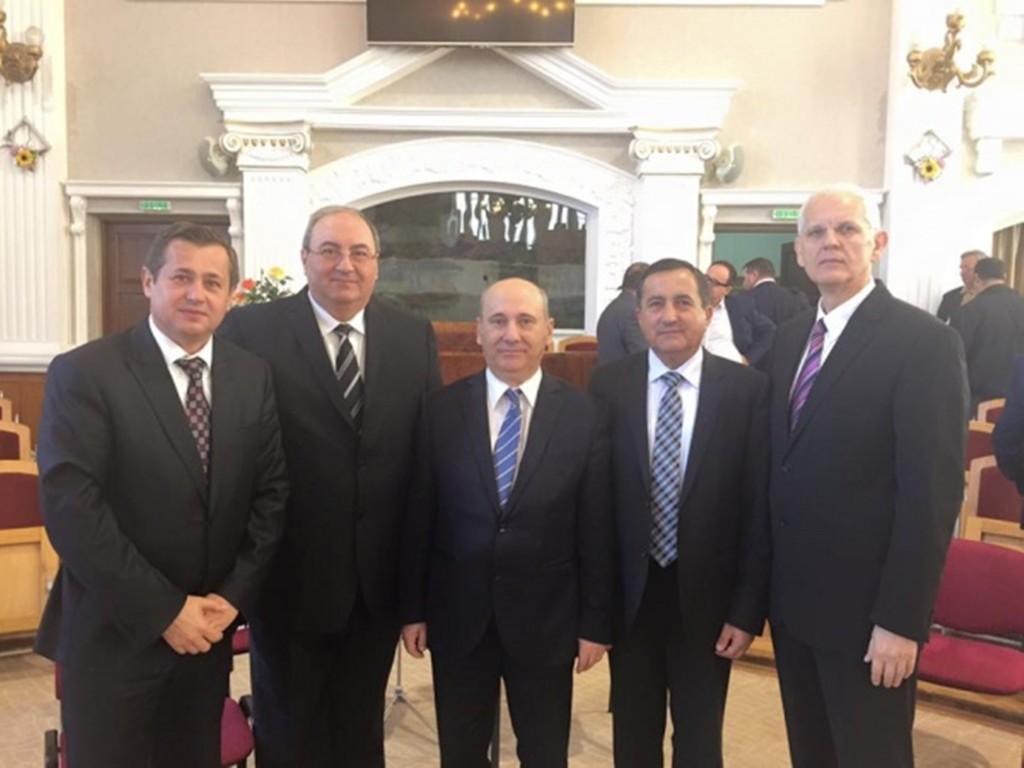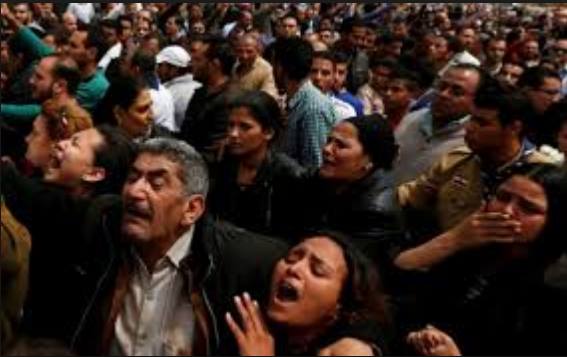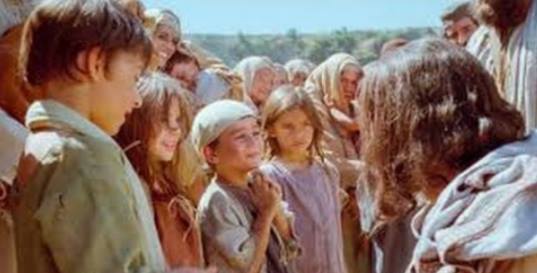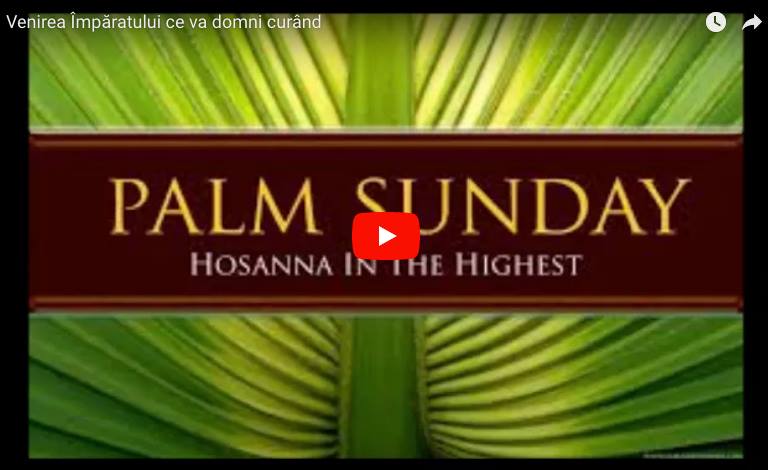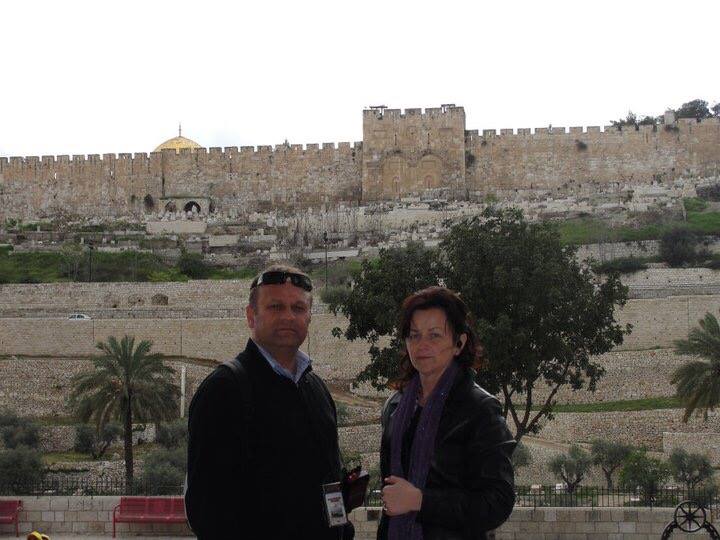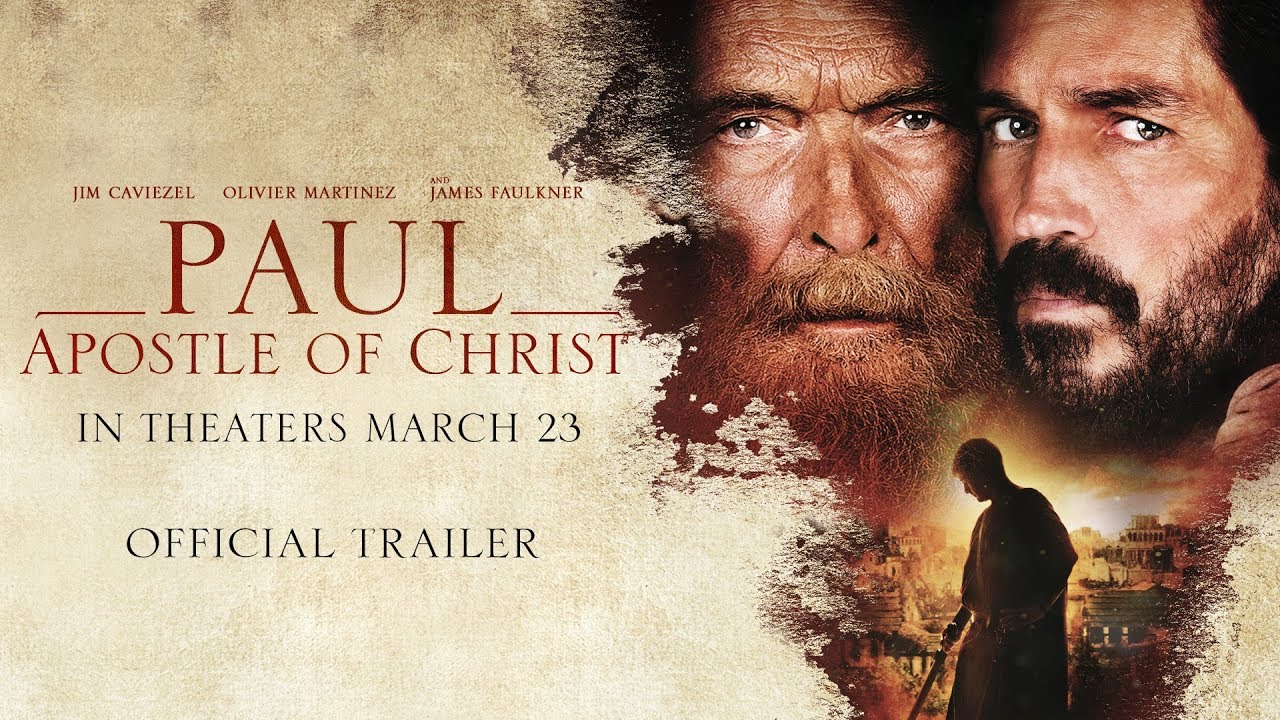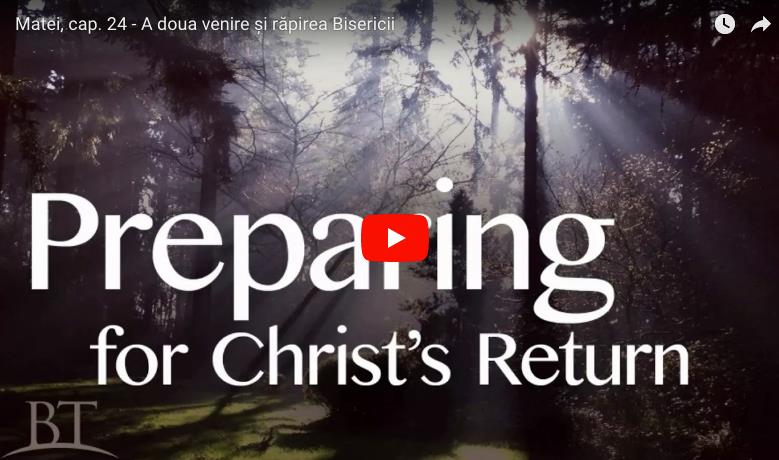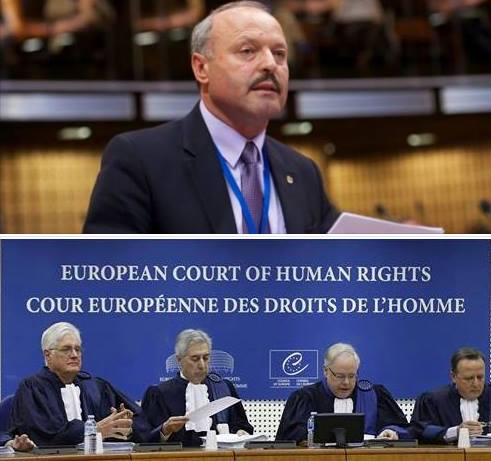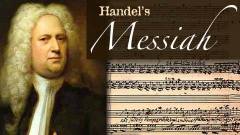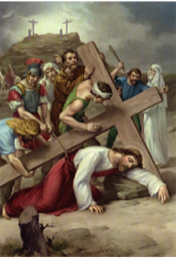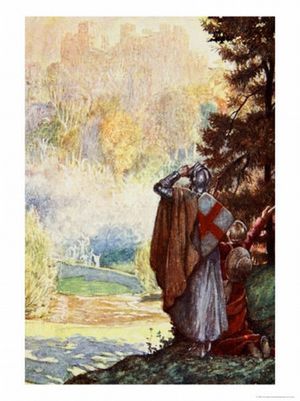Pentru traducere automata, fa click aici – Romanian

You can listen to the audio here from Desiring God, John Piper.
When they had approached Jerusalem and had come to Bethphage, at the Mount of Olives, then Jesus sent two disciples, 2 saying to them, „Go into the village opposite you, and immediately you will find a donkey tied there and a colt with her; untie them and bring them to Me. 3 „If anyone says anything to you, you shall say, ‘The Lord has need of them,’ and immediately he will send them.” 4 This took place to fulfill what was spoken through the prophet: 5 „SAY TO THE DAUGHTER OF ZION, ‘BEHOLD YOUR KING IS COMING TO YOU, GENTLE, AND MOUNTED ON A DONKEY, EVEN ON A COLT, THE FOAL OF A BEAST OF BURDEN.'” 6 The disciples went and did just as Jesus had instructed them, 7 and brought the donkey and the colt, and laid their coats on them; and He sat on the coats. 8 Most of the crowd spread their coats in the road, and others were cutting branches from the trees and spreading them in the road. 9 The crowds going ahead of Him, and those who followed, were shouting, „Hosanna to the Son of David; BLESSED IS HE WHO COMES IN THE NAME OF THE LORD; Hosanna in the highest!” 10 When He had entered Jerusalem, all the city was stirred, saying, „Who is this?” 11 And the crowds were saying, „This is the prophet Jesus, from Nazareth in Galilee.” 12 And Jesus entered the temple and drove out all those who were buying and selling in the temple, and overturned the tables of the money changers and the seats of those who were selling doves. 13 And He said to them, „It is written, ‘MY HOUSE SHALL BE CALLED A HOUSE OF PRAYER’; but you are making it a ROBBERS’ DEN.” 14 And the blind and the lame came to Him in the temple, and He healed them. 15 But when the chief priests and the scribes saw the wonderful things that He had done, and the children who were shouting in the temple, „Hosanna to the Son of David,” they became indignant 16 and said to Him, „Do You hear what these children are saying?” And Jesus said to them, „Yes; have you never read, ‘OUT OF THE MOUTH OF INFANTS AND NURSING BABIES YOU HAVE PREPARED PRAISE FOR YOURSELF’?” 17 And He left them and went out of the city to Bethany, and spent the night there.
What I would like to do this morning is help you hear Jesus’ own declaration of his kingship. I want you to see from Matthew 21:1-17 how Jesus says, „I am your king.” And I would like to do it in a way that makes sure you see the nature of his kingship now and the different nature of his kingship when he comes a second time. And I want you to see and feel the difference because the nature of Jesus’ kingship now is creating a season of salvation in world history during which you can still switch sides and be saved from his wrath and judgment. There is still time – even now this morning – when you can accept the amnesty that King Jesus holds out to you, and renounce your allegiance to self and success and money and family and physical pleasure and security – and whatever else rules you more than Jesus. And you can bow and receive Christ as your King and swear allegiance to him, and be on his side with everlasting joy.
The Kingship of Jesus Will Look Different Than It Does Now
To help you feel the wonder of this brief season of salvation in world history – and yes I say brief, though it has lasted 2000 years; compared to how long we will exist in heaven or hell, it is very brief – to feel the wonder of this brief season of salvation in world history consider that the day is coming, and perhaps soon, when the kingship of Jesus will very different than it is now. Here is a description of that kingship, as John saw it in the last book of the Bible:
And I saw heaven opened, and behold, a white horse, and He who sat on it is called Faithful and True, and in righteousness He judges and wages war. 12 His eyes are a flame of fire, and on His head are many diadems; and He has a name written on Him which no one knows except Himself. 13 He is clothed with a robe dipped in blood, and His name is called The Word of God. 14 And the armies which are in heaven, clothed in fine linen, white and clean, were following Him on white horses. 15 From His mouth comes a sharp sword, so that with it He may strike down the nations, and He will rule them with a rod of iron; and He treads the wine press of the fierce wrath of God, the Almighty. 16 And on His robe and on His thigh He has a name written, „KING OF KINGS, AND LORD OF LORDS.” (Revelation 19:11-16)
When the kingship of Jesus appears in the skies like that, it will be too late to switch sides. „Behold, now is ‘the acceptable time,’ behold, now is ‘the day of salvation'” (2 Corinthians 6:2). I believe that is what Matthew is trying to say to us this morning in the way Jesus proclaims his kingship in Matthew 21:1-17. What he wants us to hear – what Jesus wants us to see – is that, yes, he is king, yes his kingship is not provincial or tribal or national, but international and global and universal. But it is for now meek, lowly, welcoming, seeking, forgiving, patient. He will, in a matter of days, shed his own blood to save all who will accept his free gift of amnesty and come over to his side. And until he comes again this is the wonder of his kingship. It saves sinners.
So let’s watch him make this declaration. I just want you to see him. I want you to hear him. Rivet your attention on Jesus this morning. He will win you. He will heal you. He will save you.
There are four ways that Jesus declares his kingship in this triumphal entry. All of them are Jewish. He was a Jew, and he was fulfilling Jewish promises of a coming king and Messiah. But all them are bigger than Jewish. Remember this gospel is going to end in chapter 28 with the words, „All authority has been given to Me in heaven and on earth. Go therefore and make disciples of all the nations” (Matthew 28:18-19). Jesus knows that he is the king over all nations, not just Israel.
So let’s listen and watch as he declares himself King of the Jews and King of the nations.
1. Jesus Declares His Kingship by Riding on a Donkey (Zech. 9:9)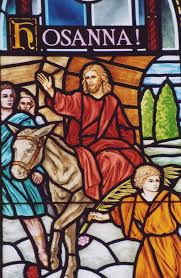
First, notice Matthew 21:1-5. Jesus sends two of his disciples to get a donkey. Verse 2: „Go into the village opposite you, and immediately you will find a donkey tied there and a colt with her; untie them and bring them to Me.” Why? What is he doing? Why does he want a ride into Jerusalem on a donkey? Never before has he done such a thing. Matthew tells us why in verses 4-5, „This took place to fulfill what was spoken through the prophet: ‘Say to the daughter of Zion [that is, to Israel], „Behold your king is coming to you, gentle, and mounted on a donkey, even on a colt, the foal of a beast of burden.”‘”
This is a quote from the prophet Zechariah (9:9). Jesus has chosen to act out the fulfillment of this prophecy and to declare his kingship in the action of riding on a donkey. This means, yes, I am king, for that’s what the prophet says it means: „Behold your king.” „But,” he is saying, „I am gentle and lowly. I am not, in my first coming, on a white war-horse with a sword and a rod of iron. I am not coming to slay you. I am coming to save you. This time. Today is the day of salvation.
But is he only coming for the „daughter of Zion,” Israel? Listen to the context in Zechariah 9:9-10 – and Jesus knew the context –
Rejoice greatly, O daughter of Zion! Shout in triumph, O daughter of Jerusalem! Behold, your king is coming to you; He is just and endowed with salvation, Humble, and mounted on a donkey, Even on a colt, the foal of a donkey. 10 I will cut off the chariot from Ephraim And the horse from Jerusalem; And the bow of war will be cut off. And He will speak peace to the nations; And His dominion [his kingship] will be from sea to sea, And from the River to the ends of the earth.
That’s declaration number one. Jesus very intentionally acts out the fulfillment of Zechariah 9:9 and declares his humble, gentile, saving, Jewish and global kingship. And invites you to receive it.
2. Jesus Declares His Kingship by Cleansing the Temple (Isa. 56:7)
Second, in verses 12-13 Jesus acts out another Old Testament text. It says he „entered the temple and drove out all those who were buying and selling in the temple, and overturned the tables of the money changers and the seats of those who were selling doves.” Don’t think that this meek, gentle, lowly Savior-King was without passion for his Father’s glory!
Then to explain what he is doing he quotes Isaiah 56:7. Verse 13: „And He said to them, ‘It is written, „My house shall be called a house of prayer;” but you are making it a robbers’ den.'” There are two things that make this action and this Old Testament quote so significant. One is that the context in Isaiah is about the coming kingdom of God, and so Jesus is putting himself in the position of the coming king. And the other is that the context is global, not just Jewish. Listen to Isaiah 56:6-8.
Also the foreigners who join themselves to the Lord. . . 7 Even those I will bring to My holy mountain And make them joyful in My house of prayer. . . . For My house will be called a house of prayer for all the peoples.” 8 The Lord GOD, who gathers the dispersed of Israel, declares, „Yet others I will gather to them, to those already gathered.”
So when Jesus chooses a prophetic word to interpret his action in the temple, he chooses one that underlines his coming on a donkey as king and the fact that his kingship is „for all the peoples.” It’s for you this morning. He is jealous to open his Father’s house to you for prayer.
3. Jesus Declares His Kingship by Healing (Isa. 35:4-6)
Third, in verse 14 it says, „And the blind and the lame came to him in the temple, and he healed them.” Imagine what an impact this must have had. We are talking about the most public place in the city – the temple. We are talking about blind people, and people who can’t walk – lame, paralyzed people. Not people with headaches and sore throats. This was a public demonstration of something. What?
We’ve already been told at least once. When John the Baptist was in jail he sent and asked Jesus, „Are You the Expected One, or shall we look for someone else?” In other words, are you the coming king of Israel, the Messiah? And Jesus sent this word back to John in Matthew 11:4-5, „Go and report to John what you hear and see: the blind receive sight and the lame walk.” In other words, „Yes. I am the coming king.”
Why? Why does the healing of the blind and the lame in the temple after coming into Jerusalem on a donkey mean: I am the coming king? Because in Isaiah 35 the prophet describes the coming kingship of the Messiah like this: ” Take courage, fear not. . . . The recompense of God will come, But He will save you. Then the eyes of the blind will be opened. And . . . Then the lame will leap like a deer” (35:4-6).
Jesus comes on a donkey, lowly and gentle and patient; he comes cleansing his Father’s house to make it a house of prayer for all the nations; he comes healing the blind and the lame – all to show what his kingship is now in part, and will be fully in the age to come. It is not just a kingship over other kings, but over disease and all nature. We will not just be safe and sick when he comes. We will be safe and whole – absolutely whole. Now is the acceptable time, now is the day of salvation. Trust him. Receive his amnesty. Become his subject.
4. Jesus Declares His Kingship by His Response to Children (Psa. 8)
Finally, Jesus declares his kingship by the way he responds to what the people and the children are doing and saying. In verse 8 the crowds are spreading their cloaks on the road in front of him. This is what they did when kings were crowned in the Old Testament (2 Kings 9:13). In verse 9 the crowds were shouting, „Hosanna [salvation!] to the Son of David [the hoped for king like David]; ‘Blessed is He who comes in the name of the Lord.'” (These are words from Psalm 118:25-26.)
Then in verse 15 the children were shouting the same things: „Hosanna to the Son of David.” In other words, „The king is here, the king is here!” But the chief priests became angry. So they said in verse 16, „Do You hear what these children are saying?” Now I think they could just as easily have said, „Did you hear what those crowds said? Did you see what they were doing when they put their cloaks on the ground?” They can’t believe Jesus is letting all this stand unchallenged.
Jesus answers their question with one simple word. And then an absolutely astonishing quote from Psalm 8. They say, „Do you hear what these children are saying?” And he answers in verse 16b, „Yes.” „Yes, I do. I not only hear it. I planned it. And I receive it. I would gladly receive it from you. And he would gladly receive it from us!”
Then, he ends this section by quoting Psalm 8, „Have you never read, ‘Out of the mouth of infants and nursing babies You have prepared praise for Yourself’?” What is so astonishing about this is that it refers to God. „O Lord, our Lord, How majestic is Your name in all the earth, Who have displayed Your splendor above the heavens! 2 From the mouth of infants and nursing babes You have established strength [or: praise] Because of Your adversaries.” Don’t miss this. Jesus receives the praises of little children and then explains it by quoting a psalm where children are praising God.
 The King Has Come and Is Coming
The King Has Come and Is Coming
So here is the concluding declaration and invitation: Jesus came the first time, and he is coming again, as the king over all kings. King of Israel, king of all the nations, king of nature and the universe. Until he comes again, there is a day of amnesty and forgiveness and patience. He still rides a donkey and not yet a white war-horse with a rod of iron. He is ready to save all who receive him as Savior and Treasure and King. Come to him. Know him. Receive him. Live your life in allegiance to him.
By John Piper. © Desiring God. Website: desiringGod.org


 resurrection. Then Matthew’s center of these instructions is the future mission to spread the good news through baptism and teaching
resurrection. Then Matthew’s center of these instructions is the future mission to spread the good news through baptism and teaching  Christ in every book (of the Bible)
Christ in every book (of the Bible)





 The Apostle Paul wrote, “O death, where is your sting?” (1 Corinthians 15:55). Anyone grieving the death of someone they love deeply will say that “sting” hardly begins to describe the pain.
The Apostle Paul wrote, “O death, where is your sting?” (1 Corinthians 15:55). Anyone grieving the death of someone they love deeply will say that “sting” hardly begins to describe the pain.




 For easy access to this page year round, you will always find it on the right sidebar of the blog when you click on the picture immediately to the right-
For easy access to this page year round, you will always find it on the right sidebar of the blog when you click on the picture immediately to the right-
































 In John 6:5 , Jesus is preparing to feed the 5,000. He turns to Philip and asks: Therefore, Jesus lifting up His eyes and seeing that a great multitude was coming to Him said to Philip, „Where are we to buy bread that these may eat?” Philip is a minor figure in the Gospels. After the calling of the disciples, Jesus addresses Philip directly only once, that we hear of. Why then, does Jesus ask this question of Philip? Why not Peter, James, or John, who are much more prominent figures? Why not Judas, who kept the money? Presumably, when John told the story, he wasn’t concerned with the reason Jesus chose Philip. But, if someone were forging the story as fiction, crafting a legend, he would have a literary reason for selecting a particular disciple as a character in his fictional narrative. Accordingly, a fabricator of fiction would not select a character without making the reason clear to the audience.
In John 6:5 , Jesus is preparing to feed the 5,000. He turns to Philip and asks: Therefore, Jesus lifting up His eyes and seeing that a great multitude was coming to Him said to Philip, „Where are we to buy bread that these may eat?” Philip is a minor figure in the Gospels. After the calling of the disciples, Jesus addresses Philip directly only once, that we hear of. Why then, does Jesus ask this question of Philip? Why not Peter, James, or John, who are much more prominent figures? Why not Judas, who kept the money? Presumably, when John told the story, he wasn’t concerned with the reason Jesus chose Philip. But, if someone were forging the story as fiction, crafting a legend, he would have a literary reason for selecting a particular disciple as a character in his fictional narrative. Accordingly, a fabricator of fiction would not select a character without making the reason clear to the audience.
 The world needs saving. Jesus doesn’t need saving, He comes as the Savior. And so, we cold press on, and on, and on. But, one of the dimensions is which there is a perennial clash between the world and Jesus is in the dimension of authority. Who is boss? Who reigns? Who has the last say? What is authority? It’s actually quite a slippery word. In the verses I just read, Jesus demonstrates His authority, and these verses are linked to the verses in the sermon on the mount, which focus again on Jesus’s authority. At the end of the sermon on the mount, we read, in 7:28 „When Jesus finished saying these things, the crowds were amazed at His teaching, because He taught as one who had authority, and not as their teachers of the law.
The world needs saving. Jesus doesn’t need saving, He comes as the Savior. And so, we cold press on, and on, and on. But, one of the dimensions is which there is a perennial clash between the world and Jesus is in the dimension of authority. Who is boss? Who reigns? Who has the last say? What is authority? It’s actually quite a slippery word. In the verses I just read, Jesus demonstrates His authority, and these verses are linked to the verses in the sermon on the mount, which focus again on Jesus’s authority. At the end of the sermon on the mount, we read, in 7:28 „When Jesus finished saying these things, the crowds were amazed at His teaching, because He taught as one who had authority, and not as their teachers of the law.

















